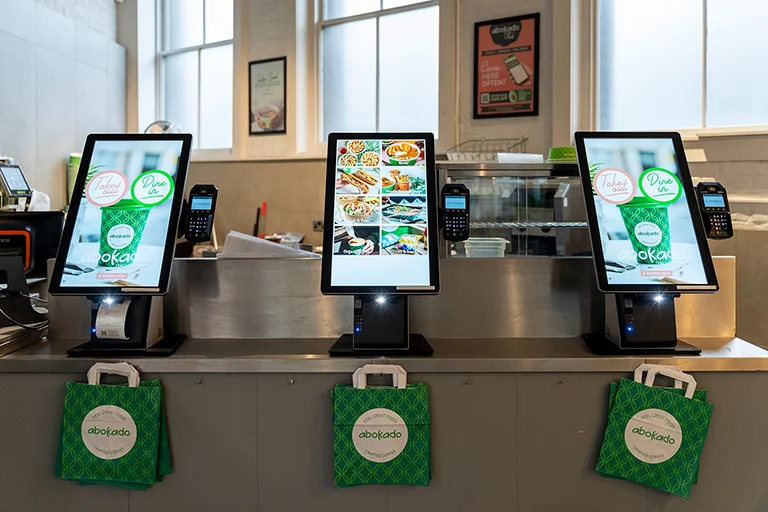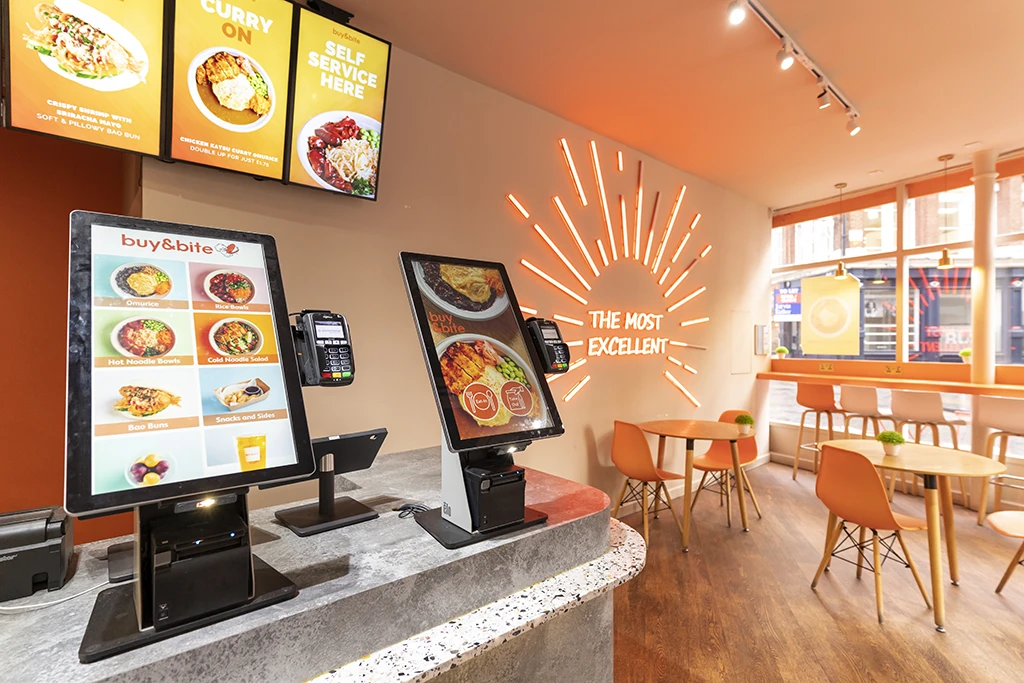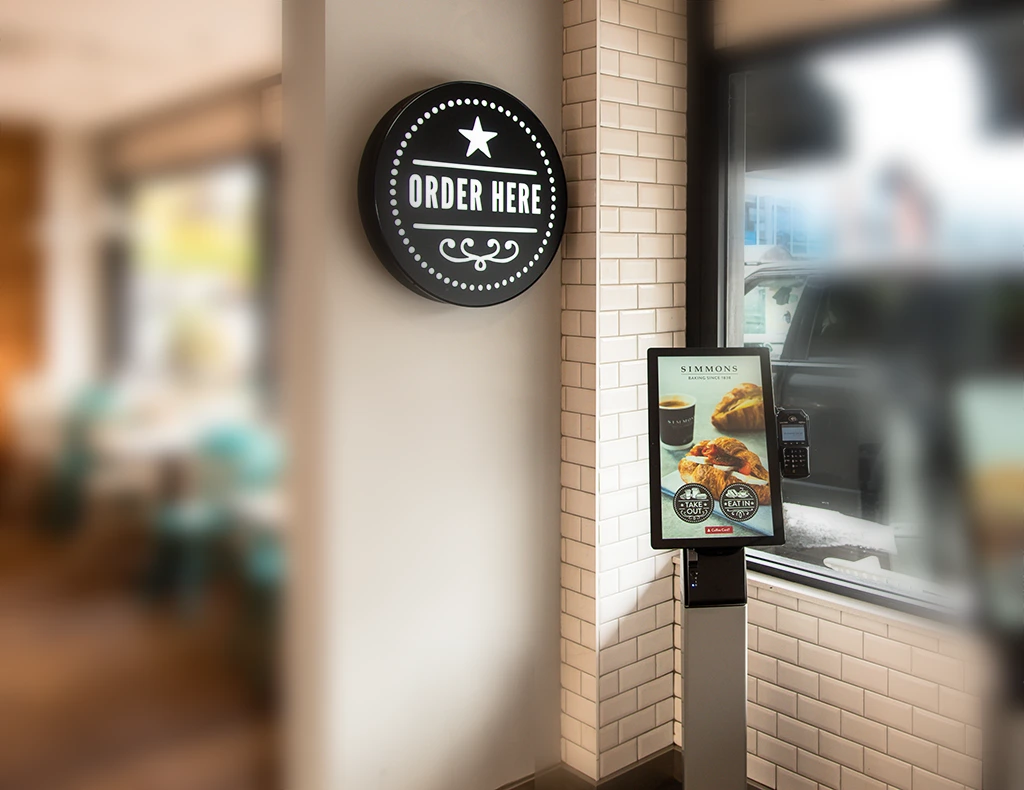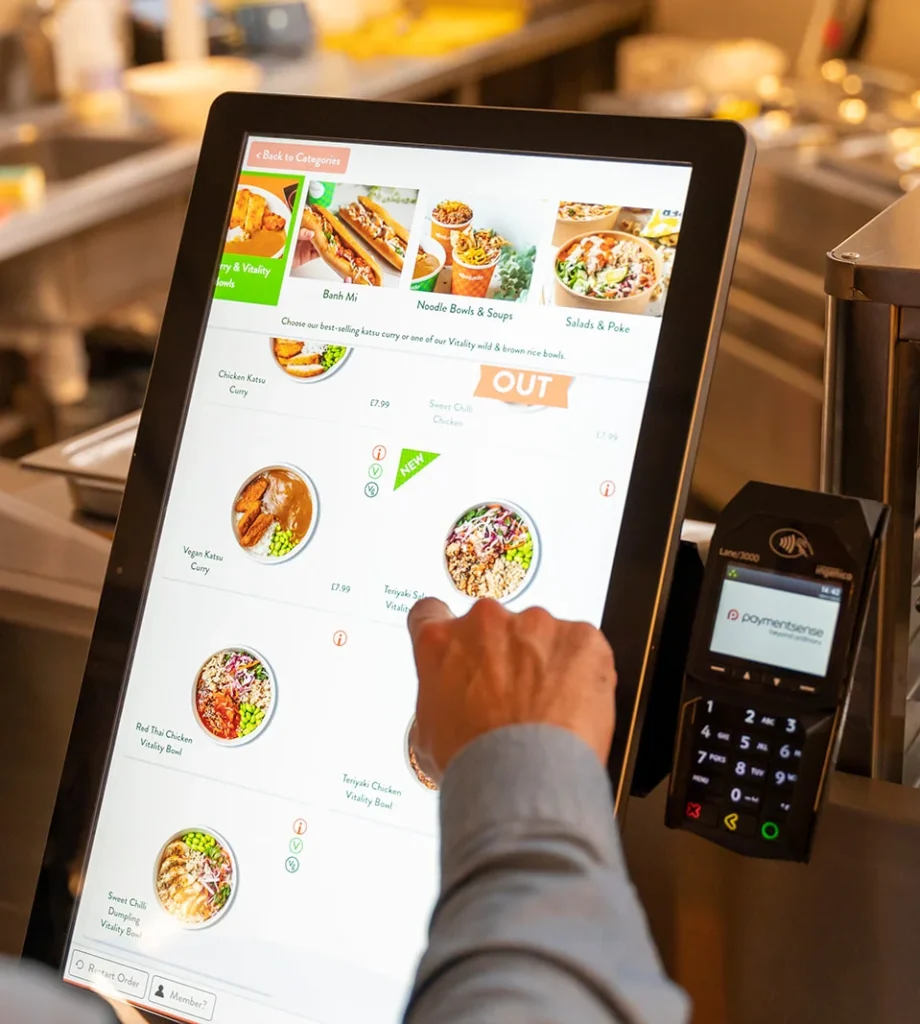What Is a Self-Service Kiosk?
A self service kiosk is an interactive touchscreen terminal that lets customers place their own orders without staff assistance. Think of it as a digital ordering point that reduces queues, improves order accuracy, and increases average spend — all while integrating seamlessly with your EPOS and back-of-house systems.
From quick service restaurants and bakeries to bubble tea and coffee shops, more hospitality businesses are embracing self service kiosks as a core channel in their multi-platform ordering strategy.
Learn more about Kurve’s kiosk ordering system
Why Are Self Ordering Kiosks Booming in 2025?
The demand for self ordering kiosks has surged in 2025 — and it’s not just about keeping up with trends. Operators across hospitality are investing in kiosks because they deliver tangible, measurable results and increase business sustainability.
Self service technology solves multiple real-world challenges, from labour shortages to queue bottlenecks, while also improving speed of service and increasing revenue. As consumers become more accustomed to digital experiences in every aspect of their lives, they now expect the same ease and autonomy when placing food and drink orders.

Real Results from Kurve Clients
Across a variety of sites, Kurve clients are seeing fast and measurable results:
Abokado rolled out kiosks and handheld PoS across their sites. The impact?
- Upselling prompts encouraged customers to add extras, increasing average transaction value
- Significant labour savings across all sites
- Guest satisfaction improved with smoother ordering and faster service
As part of their digital strategy, Simmons wanted to blend self ordering with their in-house loyalty and operations system. Kurve kiosks integrated seamlessly and delivered:
- Centralised order management
- Reduced queues at peak times
- Increased speed of service for customers
- The kiosks integrated fully with their existing EPOS and loyalty system, delivering a seamless experience
“The new Kurve self-service kiosks in our shop give us more time to focus on preparing and serving our freshly made sandwiches, savouries and cakes, while customers enjoy a speedy and convenient service.”
Director – Roses the Bakers
Roses the Bakers introduced Kurve kiosks across their sites and quickly began seeing a range of benefits:
- Order accuracy improved as kiosks supported staff with processing
- Lower wage percentages through more efficient service workflows
- Fewer errors due to improved order accuracy
Read the case studies here.
How Do Kurve Kiosks Work?
A typical Kurve self-service kiosk setup includes:
- Touchscreen hardware – available in table-mounted, wall-mounted, or freestanding formats
- Custom-branded UI/UX tailored to your venue’s look and feel
- Smart upselling prompts plus allergen and nutritional information
- Loyalty and promotion redemption for a seamless customer experience
- Full integration with EPOS, stock management, kitchen display screens, and order collection points
- Multiple payment options – including card, contactless, QR code, Apple Pay, and Google Pay
All of this is built on Kurve’s flexible, cloud-based architecture.

Designed for Hospitality: Not Just Fast Food
Kurve kiosks are redefining the guest experience for UK operators across:
- Bakeries
- Quick Service Restaurants
- Bubble Tea Shops
- Coffee Shops
- Casual Dining Restaurants
- Cafés
- Theatres & Cultural Venues
From independent venues to large-scale enterprise rollouts, Kurve delivers a scalable, secure, and easy-to-deploy solution that works seamlessly across the hospitality sector.
Planning Your Rollout: 6 Steps to Success
Rolling out self service kiosks isn’t just about installing hardware — it’s about reimagining your customer journey, integrating with your existing systems, and ensuring a smooth transition for both guests and staff.
- Map the Customer Journey: Map out an intuitive, engaging ordering journey that reflects your brand and prompts upselling. From visual design to post-purchase touchpoints, every step should feel effortless for the guest.
- Integrate Your Systems: Connect your self-serve software with your EPOS, kitchen management, loyalty, and online ordering tools to create one unified, data-driven platform.
- Review Your Network & Infrastructure: Ensure your network capacity, security, and routing can support smooth kiosk operation and payment processing. Plan any upgrades before rollout.
- Map Your In-Store Layout: Different setups solve different challenges. Whether your goal is to increase footfall, reduce queues, or attract passing customers, your in-store design plays a crucial role. Position self-order kiosks for maximum visibility and ease of use, and optimise your floor plan to create a smooth customer flow while avoiding bottlenecks.
- Set Up Menu & Promotion Management: Use real-time menu and promotion editing to upsell high-margin items, run time-sensitive offers, and keep content fresh across all sites.
- Track & Optimise Performance: Measure key metrics — average order value, service speed, wait times, and repeat visits — so you can continually optimise performance.

Final Thoughts
Self service kiosks are no longer a “nice-to-have” — they’re now one of the most powerful operational tools in your digital transformation toolkit.
If you’re ready to increase revenue, improve efficiency, and deliver a seamless guest experience, now’s the time to explore a kiosk solution designed specifically for your venue.
